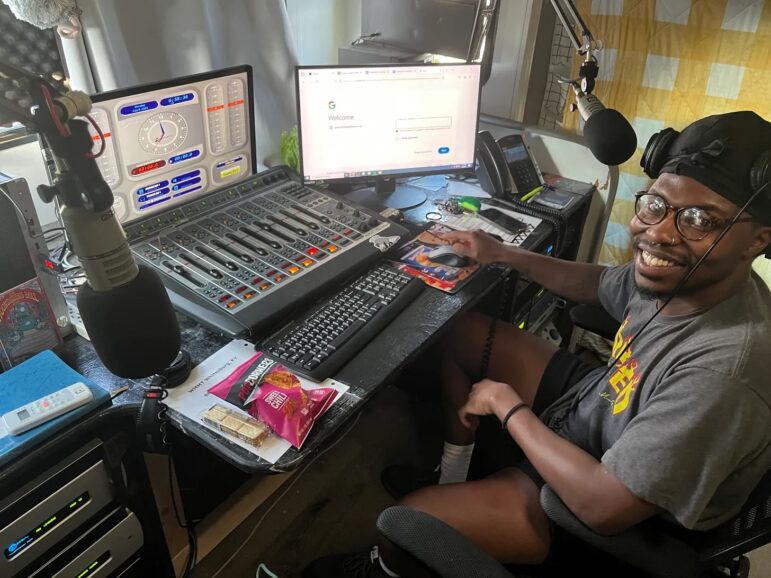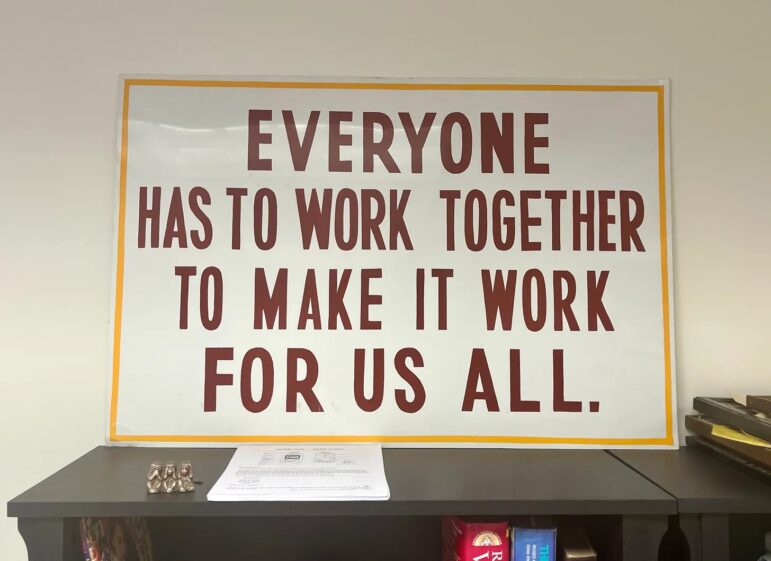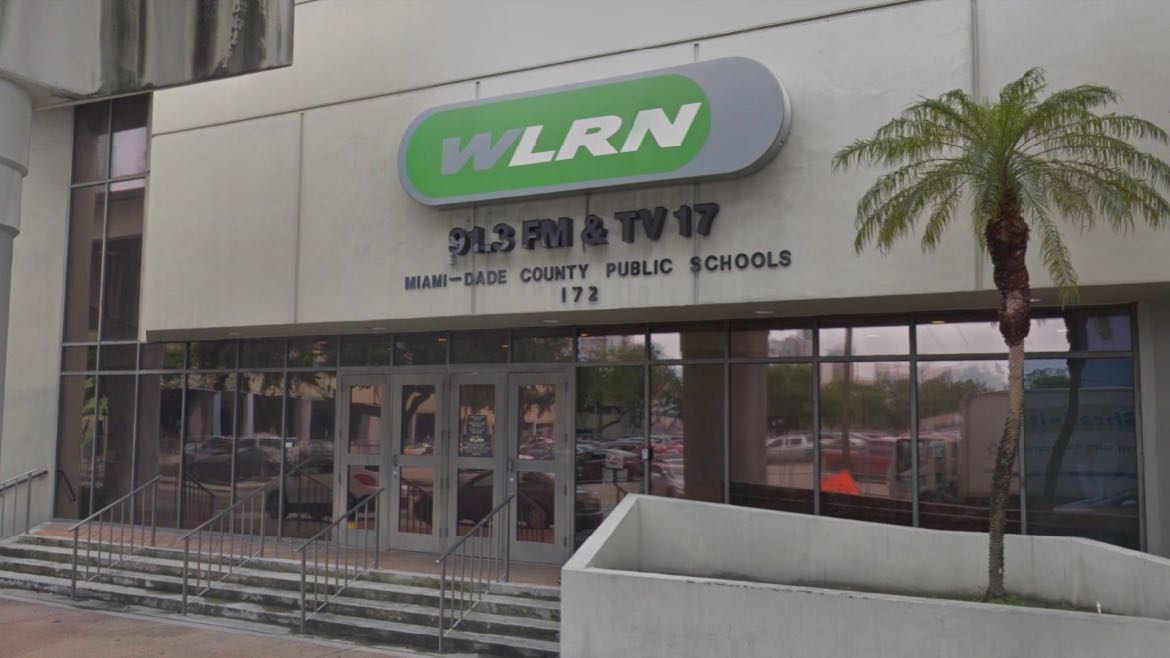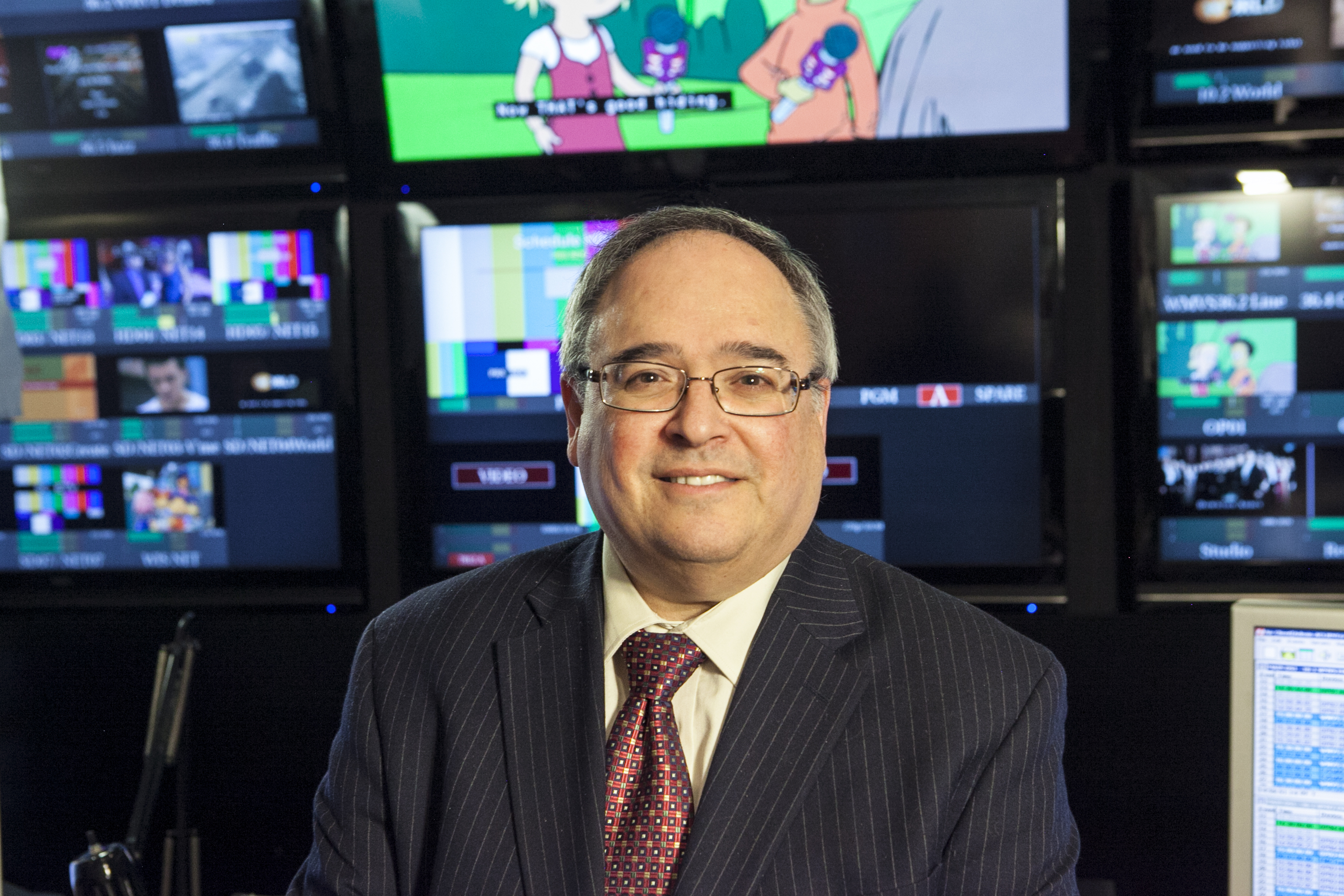What visiting 13 radio stations taught me about serving our communities

This commentary first appeared on the website of the National Federation of Community Broadcasters and is republished here with permission.
Thirty-five years ago, I was sitting in my fourth-grade classroom. My teacher handed out “How I spent my summer vacation” worksheets, and I think I wrote about going to the beach.
This year was less typical. In July, I visited 13 community radio stations in five states around Appalachia, from Knoxville, Tenn., to the Eastern panhandle of West Virginia. These radio stations are as unique as the communities they serve, and they each have unique histories that have gotten them to where they are today. For a curious guy like me, that’s part of what made it such a good trip.
I’m not really into manifestos, but this trip cemented some things that I’ve been thinking about for a long time. Let’s call them tenets drawn from a lot of observation.
Public and community radio is a powerful medium for transmitting music, culture and information.
It would be a serious mistake to frame our mission just as a medium for music, culture and information.
Public radio is not really in the “radio” business, nor the “content” business. Really, we’re in the community business — the business of serving our communities’ needs. Radio is an especially good vehicle for doing that, and we should use our medium’s strengths and sound good.
Above all else, we serve our communities by making connections. By nourishing relationships. By being fully human. By creating spaces for people to be human in each other’s presence.
We’re cutting against the grain here. Loneliness, atomization, anxiety and depression are at peak levels.
The work we do is not as lucrative as selling stuff to atomized consumers or pitting people against one another. But the work we do is almost always more important and more meaningful.
The business model of community radio is completely wild. We get volunteers to create an invisible product. Then we give it away for free. And we ask for donations. And people actually call and donate.
When we have the choice to either sell something or give it away, we typically give it away. That’s because the gift makes a relationship. A gift is not just a thing transferred from one person to another. A gift means connection. A gift means I care about you and you care about me. A gift means we have some responsibility to each other.
When you’re in the business of giving it all away, you don’t reap immediate profits. I am sure that we leave some profit sitting on the table.
But we gain trust.
And in this business, trust is the currency that lasts. In fact, at the end of the day, trust is the only currency we can really rely on. The money to run our organizations follows from trust.
So how do we earn people’s trust? We do it by serving their genuine human needs.
For people everywhere, first among those needs is to be physically safe and economically secure.

Allegheny Mountain Radio started in the early 1980s in Pocahontas County, W.Va. The driving force was a Yale graduate who had finished a VISTA volunteer gig and was looking for another way to serve this rural area. So he and some others started a radio station. In its early years, a few locals got involved, but most people didn’t really pay much attention to the hippies and college kids and their radio station.
Then in 1985, record-setting rainfall brought devastating floods to Pocahontas County. People’s homes and lives were destroyed.
Somehow, Allegheny Mountain Radio stayed on the air. Staff basically lived at the studios, hosting round-the-clock shifts for two weeks, sharing warnings, getting aid to people who needed it, serving as a communications hub for their county. It mattered. It helped people. It probably saved lives.
After that, locals cared about Allegheny Mountain Radio.

Another human need: To be heard and understood. To feel belonging.
Appalshop launched in 1969 deep in coal country in Whitesburg, Ky. The name “Appalshop” comes from Appalachian Film Workshop, which from its inception was all about training young people how to make films. A few years later, Appalshop started a record label, June Appal Recordings. In 1985, they launched WMMT radio.
For generations, Appalshop has trained people how to make films and tell stories. How to make radio and share music and culture. About Appalachia. As Appalachians. Using Appalachian voices and accents. And making space for Appalachian people to solve problems in their own way.

They knew it then, and they know it now: When outsiders are the only ones telling the story, they either get it wrong or they don’t bother telling it at all. When you can tell your own stories, it empowers you and strengthens your community’s sense of itself. And it lets you and your people envision a better community.
Appalshop and WMMT have leaned hard into preserving and sharing traditional mountain culture and music over the years, but they’re not stuck in the past. Their record label just released a compilation album, No Options: Hip-Hop in Appalachia. WMMT’s weekly show Calls From Home connects families from across the country to loved ones doing time in SuperMax prisons in the station’s listening area. Because those inmates are part of the community, too. And they listen.

Another human need: To experience beauty and joy and enchantment. Especially in the presence of other humans.
WDVX launched in a camper outside Knoxville in the mid-1990s. From the jump, the station was the go-to place for folk and roots music, with a raft of well-known acoustic acts performing in the back of that camper. Then WDVX moved to downtown Knoxville, where they’ve been housed in the Visit Knoxville tourism offices for the last 20 years. The station hitched its wagon to the revitalization of Knoxville’s downtown arts district.
WDVX’s brand is very clear: folk, roots, and Americana with an emphasis on East Tennessee. Central to that is their signature live music show, Blue Plate Special. The station airs a live concert at noon literally every day Monday through Saturday. They also organize and broadcast a slew of bigger concerts around town and an even bigger annual music festival. All told, WDVX produces well over 300 live concerts each year.

Every one of these stations I visited is different. But our stations are all community radio stations for one key reason: Our primary purpose is to love people and serve real human needs. That’s it — love, service, and humans.
Here’s the great part: Of all the service agencies out there doing good work, we have the coolest tools. We have radio stations and digital platforms and awesome event spaces. We get to have fun with our service.
In America today, millions of people are not getting their needs met. We’ve living through a social unraveling: trust is at a low point, shared service is at a low point, civic engagement is at a low point.
But we can turn it around. I know that so many people yearn for human connections. Yearn to understand and support each other and feel like we belong. Yearn to experience real beauty in each other’s presence. Yearn to have fun along the way.
Let’s be there for them.
They’re not just audience. They’re people.
They’re not just consumers. They’re citizens.
They’re not really “they” at all. They are us. The fourth graders who wrote about their summer vacations. Who have grown into adults trying to make a living and help our neighbors. Trying to make our communities work for us all.
Nathan Moore is GM of WTJU in Charlottesville, Va., and board treasurer for the National Federation of Community Broadcasters.






